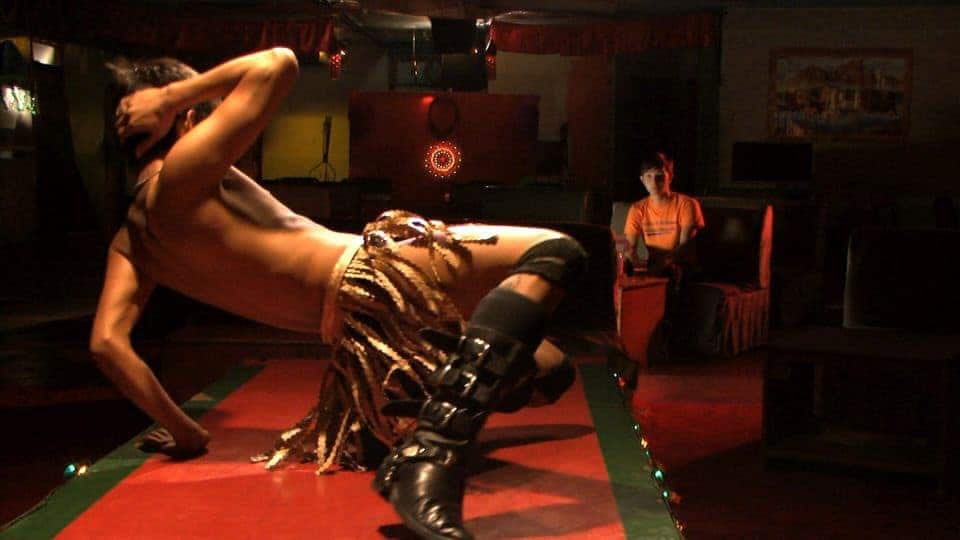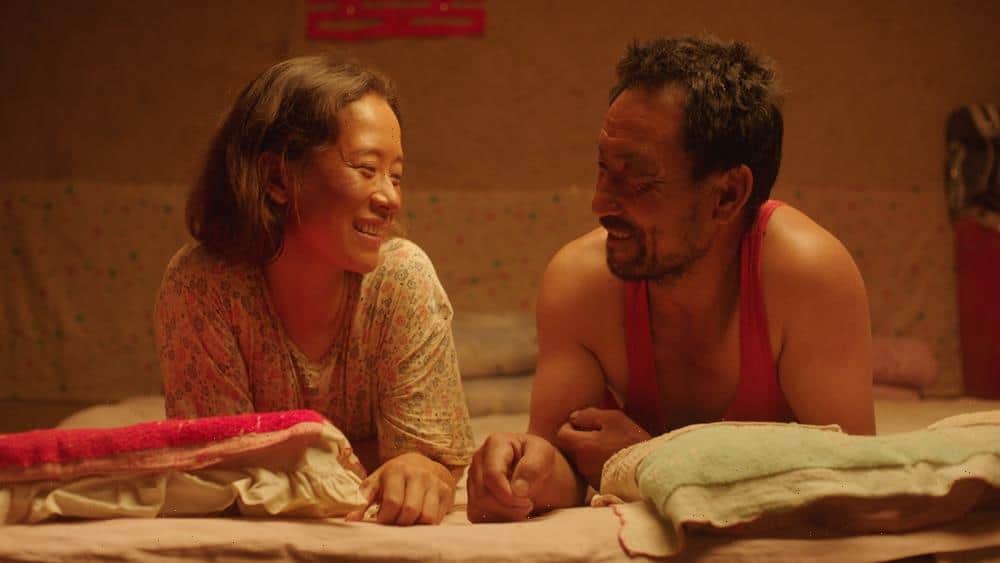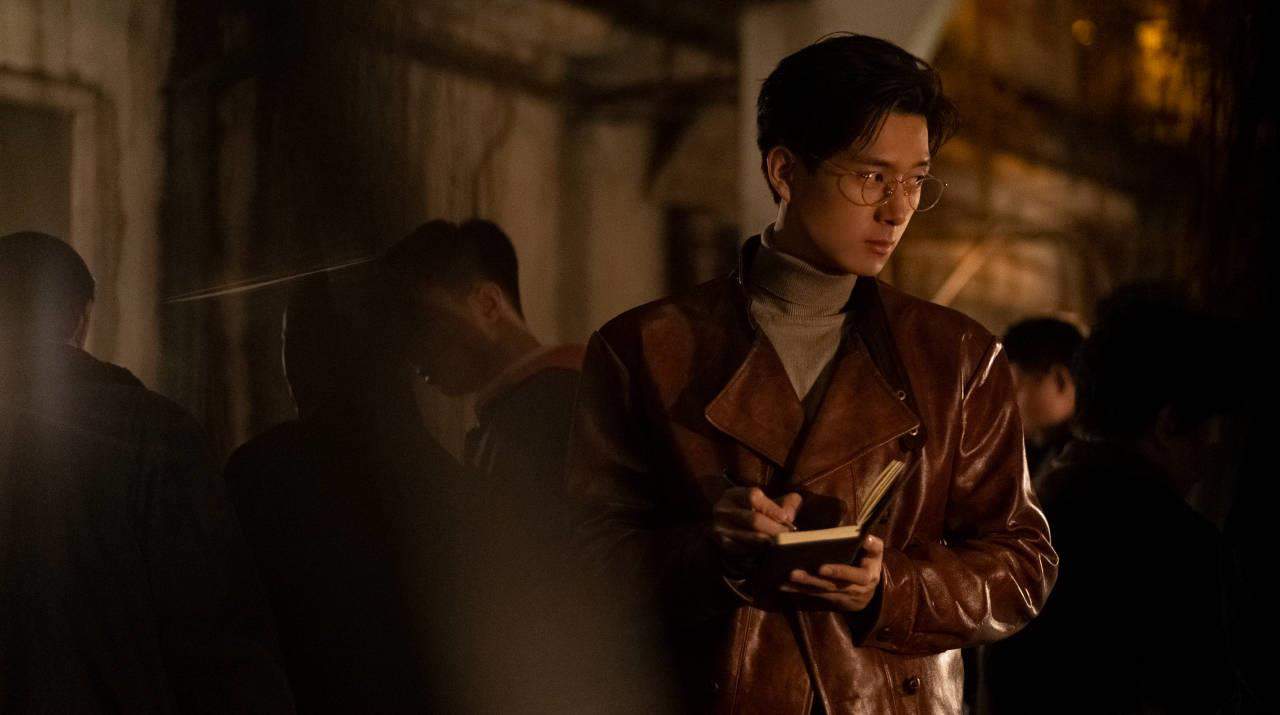It is a Sunday night, a New Year's Eve. The Boy (Aeious) enters an empty gay night club. He is 18, he writes poetry and he is curious. Obviously new to the world, as he cautiously learns and adapts to this specific biotope. The performers enter and leave the stage, but it is not until the young dancer in a loincloth-thingy, that the Boy's attention stops slipping away. Aries (Aries) is 18 years old, has a full set of teeth and under the loincloth-thingy hides some 7.5 inches.
“Boy” is screening at the 13th Slovak Queer Film Festival in Bratislava (16 – 21 October 2019).

Macho dancer films constitute a very specific genre in the Philippines LGBTQIA+ cinema. Named after the 1988 Lino Brocka “Macho Dancer”, their main raison d'être is to please the gaze. It only makes sense to set the stories of various intrigues into the worlds of night clubs, back alleys and other out-of-sight places of the society. There, young boys show their bodies in staged shows, cruise for clients and sometimes get bruised.
“Boy” stays true to these ideals as it pays homage to the genre. Young men keep showing-off their skin, they get hard, get down, get laid. And in between, the daylight reality fleshes. The reality of families that fell apart, of poverty of the country and its people, of economic and social segregation. The reality of the country that keeps lying to itself.

It is then easy to read the Boy's interest in aquariums as a metaphor for various social groups. The fish co-exist in one room, but with invisible glass walls that divide their biotopes. Despite the fact that they can see each other, perhaps even temporarily visit, it might be fatal for them to venture into alien habitats. The same applies to the spaces of the film. Night clubs and homes might allow short-lived exchanges. Yet, when the time is out, just like Cinderella, everyone has to return to own world. Somehow, they too only have that one night only.
Still, in the core of the story is a boy and his journey to himself. Similarly to “The Blossoming of Maximo Oliveros“, it is not the coming out itself that is the issue, nor is it the need to deal with parents (Madeleine Nicolas is so strong in her subtle portrayal of the mother). Like Maximo, also the Boy has to come to terms with himself, with what he wants, while already being sure about own sexual orientation. It is not coincidental that the anonymity of the main protagonist – “Boy” – dissolves the boundaries of his character, making him “everyboy”. Well, “everyboy who likes boys”.

Solito's directorial approach turns the script by Jimmy Flores and Arturo Calo into even more ethereal and at the same time very real film. Poetic language mixes with scarce home exchanges. The dialogues shift from games of words to poems, from clumsy attempts for sultry talks to quarrels between children and parents. No matter the tone or wording, it would be difficult to find an obsolete line. Moreover, they have time to resonate, to impact.
It is also the very fitting casting that adds to the mood. Both Aeious and Aries, a real-life poet and a real-life macho dancer, display a good deal of understanding for their characters and the game of habitats. Consequently, they show self-confidence in one own space and somewhat awkwardly blur or loiter when they find themselves in the strange waters. With their looks and their performances, they meet the demands of the two opposing characters. They personify one of the very basic dichotomies of body and lust, and of soul and spiritual connection. Pretty, educated Boy meets intense yet murky Aries with no school to back him. Moreover, there always is the question of the class present.
Oh yes, there is sex. The scene basically follows the ethereal-real mood, direct gaze interplays with peeking through the aquariums. It melds the initial clumsiness of finding the moment to take off and captures the interplay craving and nervosity of how to approach the other with the slow process of finding the rhythm. It is easy to believe that the “normalty” of the depiction of same-sex intercourse disturbed the Singaporean guardians of morals.
Look at “Boy” and you will see a small film. Look deeper and you will see a very complex film. It hides lot of ideas and emotions that surpass the individual journey to oneself. Yet it does not allow them to take one over the other. Nor does it allow to take over the strong demand for personal integrity. Simply put, “Boy” is meticulous in execution, economic in its expression and rich in its impact.















